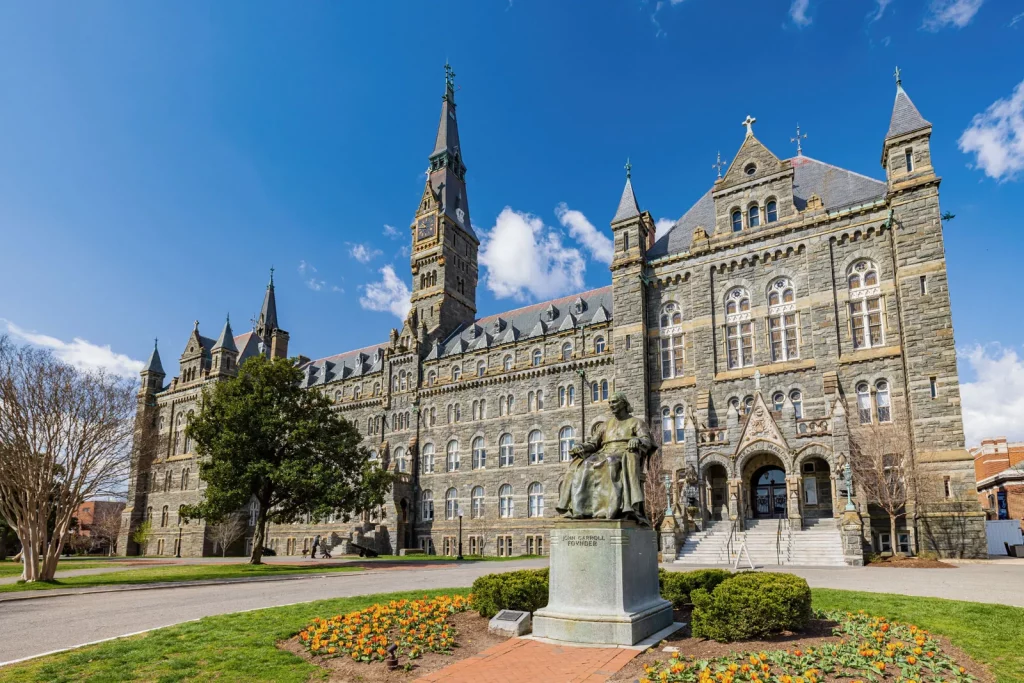G.U. Launches $400,000 Annual Fund to Support Descendants of the Enslaved
By • February 6, 2023 0 868

Georgetown University has created a new fund that will award $400,000 annually to community-based projects that can impact the descendants of the men, women and children enslaved on Jesuit plantations in Maryland.
The following are details, as provided by the university.
The Reconciliation Fund, which was inspired by an undergraduate student referendum in 2019, has begun accepting applications for projects that aim to benefit communities of descendants, many of whom live in and around Maringouin, Louisiana, where their ancestors — reportedly 272 individuals — were sold and forcibly moved to in 1838. The projects could include health and legal clinics, environmental justice projects, after-school and pre-college programs and local history and memorialization projects.
In partnership with the university, a student committee and an advisory committee of descendants have developed the application process for the Reconciliation Fund. Both groups will also review grant proposals for community-based projects and make recommendations to university leaders, who will select the final projects.
“The Reconciliation Fund is a collective effort — an example of our community’s deep commitment to the possibilities that can emerge when we work in partnership to advance reconciliation,” said Georgetown President John J. DeGioia. “This project is one way the university is reckoning with the legacies of slavery that have shaped our past and to respond by advancing justice and equity in our present.”
The university benefitted from the enslavement of people of African descent through plantations owned by the Maryland Jesuits through the mid-19th century and from the practices of slavery and forced labor that took place on and around Georgetown’s campus.
Also, Georgetown continues to engage in a long-term and ongoing process to more deeply understand and respond to its role in the injustice of slavery.
The Georgetown University Library continues to digitize the Archives of the Maryland Province of the Society of Jesus and publish items from before 1900 in DigitalGeorgetown, providing a valuable resource on the history of slavery and Catholic history. Library archivists have also recently improved the collection’s finding aid, enhancing the arrangement and description of the materials and making them more accessible to researchers and the general public.
Georgetown is also partnering with Michigan State University and the University of Virginia on a digital initiative that describes and provides access to the history of enslavement found in American college and university archival materials. The On These Grounds: Modeling and Sharing Archival Materials about Slavery project, which is funded by a grant from the Andrew W. Mellon Foundation, is led by historians and librarians from each university who are producing an open data model to be tested at each institution. Most recently, the University of North Carolina at Chapel Hill, Rutgers University, the University of Georgia, Washington and Lee University and Hampden-Sydney College have been invited to help test the tool by adding content from their archives.

